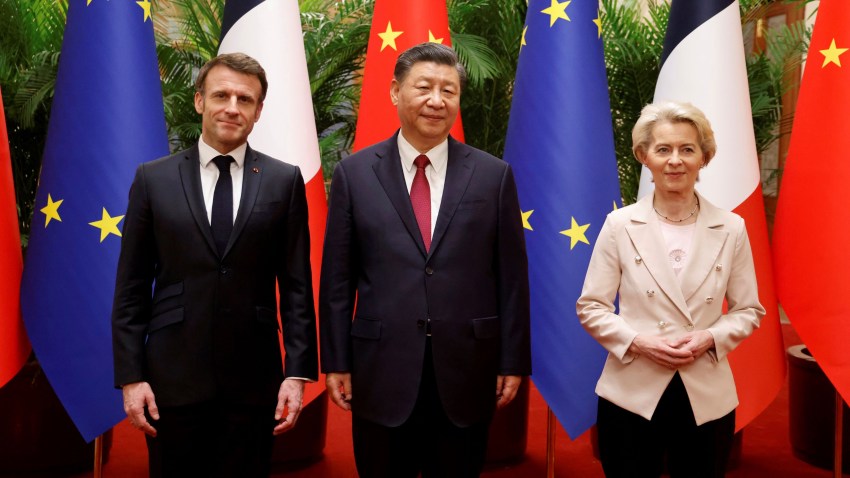French President Emmanuel Macron embarked on a three-day state visit to China earlier this month that was billed by Paris as an effort to boost trade relations with Europe and find common ground with Beijing in a bid to resolve the war in Ukraine. In an interview at the end of his trip, Macron also discussed the importance of European strategic autonomy, including on the question of a conflict between Washington and Beijing over Taiwan.
His remarks sparked widespread criticism on both sides of the Atlantic and prompted heated discussions about Europe’s role and interests in the Indo-Pacific and how the U.S. features in European decision-making. France’s Eastern European allies were quick to object. Polish Prime Minister Mateusz Morawiecki shot back at Paris by proposing “a strategic partnership with the United States” ahead of a three-day visit to Washington. And on her own trip to Beijing last week, German Foreign Minister Annalena Baerbock struck a decisively more hawkish tone than the French president on Taiwan, human rights and Chinese support for Russia in Ukraine.
Macron subsequently “clarified” that France’s commitment to Taiwan has not changed, while reiterating that Europe shouldn’t be a “vassal” of the United States. In Washington, the Biden administration quickly went into alliance-management mode, keen not to assign too much importance to the French president’s remarks and emphasizing trans-Atlantic cooperation in the Indo-Pacific.

